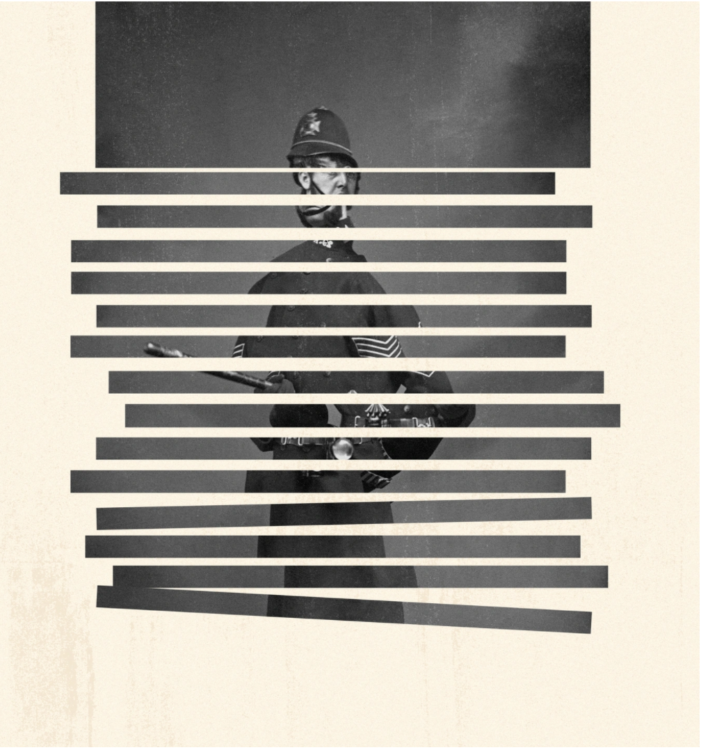How I Became a Police Abolitionist
Share
Explore Our Galleries
Breaking News!
Today's news and culture by Black and other reporters in the Black and mainstream media.
Ways to Support ABHM?
When people dismiss abolitionists for not caring about victims or safety, they tend to forget that we are those victims, those survivors of violence.
By Derecka Purnell, The Atlantic
…When people dismiss abolitionists for not caring about victims or safety, they tend to forget that we are those victims, those survivors of violence.
The first shooting I witnessed was by a uniformed security guard. I was 13. I remember that the guard was angry that his cousin skipped a sign-in sheet at my neighborhood recreation center; the victim told police it had started as an argument over “something stupid.” I was teaching my sister how to shoot free throws when the guard stormed in alongside the court, drew his weapon, and shot the boy in the arm. My sister and I hid in the locker room for hours afterward. The guard was back at work the following week.
Like the boy at the rec center who was shot by the guard, most victims of police violence survive. No hashtags or protests or fires for the wounded, assaulted, and intimidated. I often wonder, What if Derek Chauvin had kneeled on George Floyd’s neck for seven minutes and 46 seconds instead of eight? Maybe Floyd would have lived to be arrested, prosecuted, and imprisoned for allegedly attempting to use a counterfeit $20 bill. Is that justice? This, for me, is why we need police abolition. Police manage inequality by keeping the dispossessed from the owners, the Black from the white, the homeless from the housed, the beggars from the employed. Reforms make police polite managers of inequality. Abolition makes police and inequality obsolete.
“Police abolition” initially repulsed me. The idea seemed white and utopic. I’d seen too much sexual violence and buried too many friends to consider getting rid of police in St. Louis, let alone the nation. But in reality, the police were a placebo. Calling them felt like something, as the legal scholar Michelle Alexander explains, and something feels like everything when your other option is nothing.
Police couldn’t do what we really needed. They could not heal relationships or provide jobs. We were afraid every time we called. When the cops arrived, I was silenced, threatened with detention, or removed from my home. Fifteen years later, my old neighborhood still lacks quality food, employment, schools, health care, and air—all of which increases the risk of violence and the reliance on police. Yet I feared letting go; I thought we needed them.
Until the Ferguson, Missouri, cop Darren Wilson killed Michael Brown. Brown had a funeral. Wilson had a wedding. Most police officers just continue to live their lives after filling the streets with blood and bone.
I drove from Ferguson to law-school orientation two weeks after Brown’s death. I met, studied, and struggled alongside students and movement lawyers who explained the power and the purpose of the prison-industrial complex through an abolitionist framework. Black abolitionists have condemned the role of prisons and police for centuries, even before W. E. B. Du Bois’s Black Reconstruction. They imagined and built responses to harm rooted in community and accountability. In recent decades, abolitionists have developed alternatives to 911, created support systems for victims of domestic violence, prevented new jail construction, reduced police budgets, and shielded undocumented immigrants from deportation. Abolition, I learned, was a bigger idea than firing cops and closing prisons; it included eliminating the reasons people think they need cops and prisons in the first place.
Read the full article here
Read some additional articles about the policing of Black Americans through history here, here, here, here and here. (Sadly, there are way too many examples of police misconduct in interactions with Black citizens, including murders, to include here. As of this writing, Sept. 12, 2020, this virtual museum’s Search returned 42 such stories within its pages alone.)
Reading more Breaking News here.












Comments Are Welcome
Note: We moderate submissions in order to create a space for meaningful dialogue, a space where museum visitors – adults and youth –– can exchange informed, thoughtful, and relevant comments that add value to our exhibits.
Racial slurs, personal attacks, obscenity, profanity, and SHOUTING do not meet the above standard. Such comments are posted in the exhibit Hateful Speech. Commercial promotions, impersonations, and incoherent comments likewise fail to meet our goals, so will not be posted. Submissions longer than 120 words will be shortened.
See our full Comments Policy here.